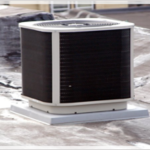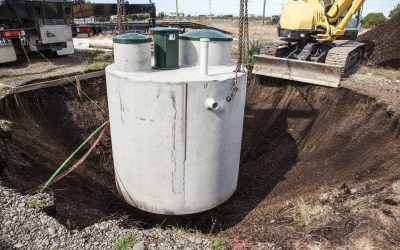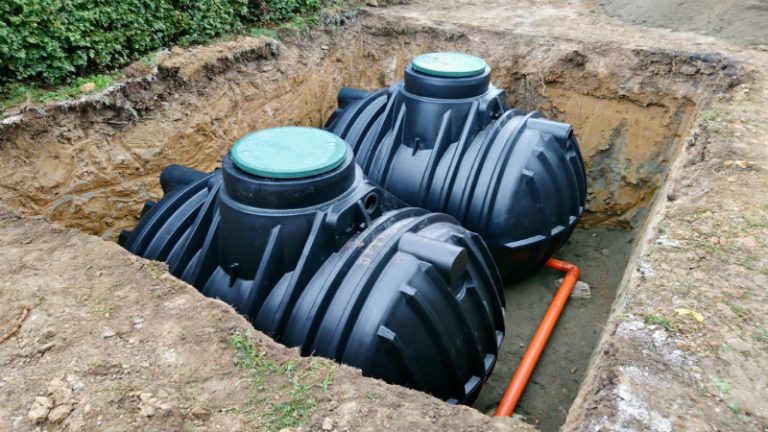Septic tanks are on-site wastewater treatment systems for places with no access to public wastewater treatment plants. They are utilized efficiently and are not harmful to the environment.
How Septic Tanks Work
Septic tanks process wastewater that comes from, sinks, dishwashers, laundry appliances and toilets. The water is sent through drain pipes with the capacity to hold around one thousand gallons of water.
The water is processed continuously by helpful bacteria that digest the solid material. Solids that can’t be consumed by the bacteria settle to the bottom of the tank. There is a filter that traps foreign materials that find their way into the tank so there is nothing that can damage the equipment. The fluid left over with no more organic materials is called effluent and it is used to fertilize the soil in the yard.
Septic Tank Maintenance
Septic Tank Services should be performed between two and four years apart. The sludge that collects at the bottom needs to be pumped out at those times. Septic tanks are also inspected and cleaned during maintenance service.
Parts in shabby condition are replaced by Septic Tank Services so the equipment continues to function at optimal capacity. Maintenance and pump service is crucial to the health of the system. System breakdowns can be costly to repair. A system that malfunctions can end with wastewater backup that leaves a foul-smelling mess.
How to Use Septic Tanks with Care
Taking care of a septic system starts when choosing a system to be installed for the building. Tanks come in different sizes and designs to meet the requirements of those using it. Things to consider are family size, the size of the home or commercial building, and the layout of the land. Large homes and families will need bigger tanks.
There are certain substances and materials that should never enter a septic tank. Grease and harsh cleaning substances should not be sent down drains. They can kill some of the helpful bacteria that process organic material. A lack of the bacteria can cause an excess of sludge buildup and the tank may need to be pumped sooner.
Washing machines should run no more than five loads of laundry a day. More than that could be an overload of wastewater for the system. Get more information at website domain.








